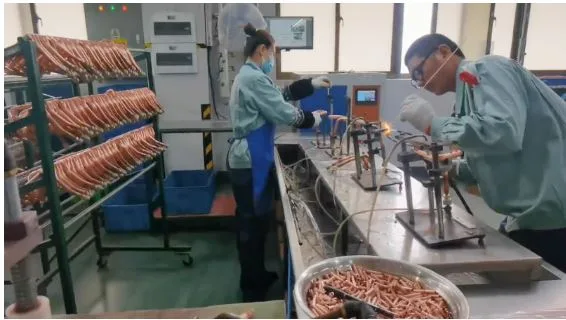Atlanta Truck Collisions: Steps to Fight for the Justice You Deserve
Commercial trucks play a critical role in keeping Georgia’s economy moving, but they also pose a unique danger on the roads. When truck drivers, trucking companies, or other parties are negligent, the resulting collisions can be catastrophic. For victims of truck accidents in Atlanta, understanding how to fight for justice isn’t just important—it’s essential to recover compensation, obtain closure, and ensure accountability.
This guide walks you through the steps to take after a truck accident in Atlanta, how to protect your legal rights, and where to find the support you need.
Understanding the Impact of Truck Accidents in Atlanta
Why Are Truck Accidents So Devastating?
Large commercial trucks—such as tractor-trailers, 18-wheelers, and dump trucks—can weigh up to 80,000 pounds when fully loaded. That kind of mass means even low-speed collisions can result in severe injuries, multi-vehicle pileups, and loss of life.
In cities like Atlanta, where traffic congestion is a daily reality, the risks are amplified. Narrow lanes, frequent merges, and distracted or aggressive driving increase the chances of a collision with a large truck. These accidents can result in:
- Traumatic brain injuries
- Spinal cord damage and paralysis
- Multiple bone fractures
- Internal bleeding
- Wrongful death
Common Causes of Truck Accidents
Truck crashes are rarely caused by a single factor. Some of the most common causes in Atlanta include:
- Driver fatigue: Many truck drivers push beyond the federally mandated hours-of-service rules, leading to slower reaction times and poor decision-making.
- Distracted driving: Using mobile devices, adjusting GPS systems, or even eating while driving can lead to deadly outcomes.
- Improper maintenance: Trucks that are not regularly inspected for brake wear, tire pressure, or faulty lights are more likely to cause accidents.
- Overloaded or improperly loaded cargo: A shift in the load can cause rollovers or jackknife accidents.
- Speeding or reckless driving: Tight delivery schedules can pressure drivers to speed, which increases stopping distances and reduces vehicle control.
Immediate Steps to Take After a Truck Accident
1. Prioritize Medical Attention
Your health and safety are the top priorities. Even if you feel fine immediately after the crash, it’s critical to get evaluated by a medical professional. Some injuries, such as internal bleeding or traumatic brain injuries, may not manifest symptoms right away.
2. Call Law Enforcement
A police report serves as a vital piece of evidence when pursuing legal action. Make sure to provide officers with a clear account of what occurred, but avoid speculating or assigning blame.
3. Document the Scene
If possible, gather evidence from the scene:
- Take photos and videos of the vehicles, injuries, road conditions, and traffic signs.
- Collect contact information from witnesses.
- Note any visible damage, skid marks, or debris on the road.
4. Avoid Speaking with the Trucking Company’s Insurer
Insurance adjusters may contact you quickly and try to obtain a recorded statement or offer a fast settlement. It’s best to refrain from discussing the accident until you’ve spoken with an experienced truck accident lawyer. These early offers often undervalue your claim and can limit your right to further compensation.
How Liability Is Determined in Atlanta Truck Accidents
Determining who is at fault in a truck crash can be far more complex than in regular car accidents. Multiple parties may share liability:
- The truck driver
- The trucking company
- Cargo loaders
- Maintenance providers
- Truck or parts manufacturers
Each of these parties may have separate insurance providers, legal teams, and layers of responsibility. A seasoned attorney will conduct a thorough investigation that could involve reviewing:
- The truck’s black box data
- Driver logs and schedules
- Maintenance records
- Surveillance or dashcam footage
- Toxicology reports, if substance use is suspected
The Legal Process for Pursuing a Truck Accident Claim
Filing a Personal Injury Claim
Once your attorney has gathered sufficient evidence, they will file a personal injury claim against the at-fault parties. In Georgia, the statute of limitations for most personal injury cases—including truck accidents—is two years from the date of the accident.
What Damages Can Be Recovered?
Victims of truck accidents may be entitled to both economic and non-economic damages:
- Medical expenses: Emergency care, surgeries, rehabilitation, and future medical costs
- Lost wages: Including diminished earning capacity if your injuries are long-term
- Property damage: Repair or replacement of your vehicle
- Pain and suffering: Emotional trauma, mental anguish, and reduced quality of life
- Punitive damages: In cases of gross negligence or reckless conduct
The Importance of Hiring an Experienced Truck Accident Lawyer
Truck accidents involve more than just navigating traffic laws—they involve federal trucking regulations, complex insurance policies, and powerful legal teams defending large transportation companies.
Hiring a legal advocate with a track record of success in truck accident litigation is crucial. A skilled lawyer can:
- Handle all communication with insurance companies
- Build a strong evidence-based case
- Retain expert witnesses (e.g., accident reconstructionists, medical professionals)
- Negotiate for a fair settlement
- Take your case to court if needed
Attorneys like John M. Foy, known as the “Strong Arm” in Georgia, have years of experience in fighting for injury victims and securing millions in settlements and verdicts. Having a tenacious advocate on your side can make all the difference in the outcome of your case.
Federal Regulations That Affect Truck Accident Claims
The Federal Motor Carrier Safety Administration (FMCSA) regulates the trucking industry nationwide. Their rules cover:
- Hours of service limitations
- Drug and alcohol testing requirements
- Vehicle maintenance standards
- Driver qualification standards
Violations of these regulations can be used as evidence of negligence in your case. For instance, if a driver exceeded the maximum number of hours on the road without rest, that breach of federal law strengthens your legal argument.
When to File a Wrongful Death Claim
In tragic cases where a loved one is lost due to a truck accident, family members may be eligible to file a wrongful death claim. This type of lawsuit allows surviving family members to seek compensation for:
- Funeral and burial expenses
- Medical bills incurred before death
- Loss of income and financial support
- Loss of companionship and emotional support
Navigating a wrongful death claim while grieving can be overwhelming. That’s why working with compassionate and experienced legal counsel is so essential.
Empowering Yourself with Legal Resources
Learning your rights is an empowering first step. National organizations such as Super Lawyers offer excellent resources about trucking accident law, legal standards, and choosing the right attorney.
Truck accident claims can be especially intimidating due to the aggressive legal tactics used by commercial trucking firms. Fortunately, legal advocates in Atlanta understand these challenges and are prepared to fight for justice on your behalf.
If you or a loved one has been affected by a trucking accident, don’t delay your pursuit of accountability. Instead, seek justice after a truck accident in Atlanta by working with a trusted law firm that understands both the legal and emotional aspects of your journey.
Conclusion
Truck collisions in Atlanta are traumatic, life-altering events. The road to recovery is long, but you don’t have to walk it alone. By taking the right steps early, seeking qualified legal help, and knowing your rights, you can hold negligent parties accountable and reclaim control over your life.
Whether it’s understanding liability, navigating federal regulations, or building a case with the help of legal professionals, every step forward brings you closer to justice. Don’t let the complexity of the process deter you—your voice matters, and the law is on your side.





